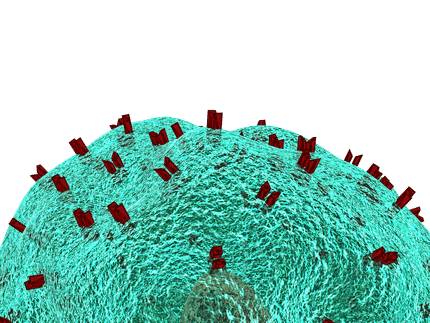Edinburgh University's alternative therapy to organ transplants
Advertisement
Scientists in Scotland have published findings which could pave the way for alternative treatments using cell replacements instead of organ transplants for those with liver failure. The group from the University of Edinburgh has identified primitive liver cells - possibly dormant from the earliest developmental stages of a human being - which have the potential to mature into different cells types and help repair a failing liver.
Head of the group Dr James Ross said: "Potentially, cell replacement therapies could provide alternative treatments that would avoid difficulties associated with obtaining sufficient donor organ transplantation. We have now identified primitive cells with the potential to mature into different cell types within and outwith the liver. It is possible that these cells lie dormant in the adult liver and may be the source of repair cells that are activated by severe liver injury."
Dr Ross added: "The liver is often able to repair and heal itself following injury or damage and this occurs in one of three ways. Firstly, mature liver cells have a well recognised and extensive capacity to divide in response to injury. Secondly, in response to massive loss of functioning liver tissue, a population of primitive liver stem cells may be stimulated to proliferate and develop into mature liver cells. The third mechanism of liver repair involves circulating stem cells originating from other sources, such as the bone marrow, and it is possible that these cells may be recruited into the liver and form new liver cells."
Original publication: The American Journal of Physiology - Gastrointestinal and Liver Physiology 2006.
Most read news
Organizations
Other news from the department science

Get the life science industry in your inbox
By submitting this form you agree that LUMITOS AG will send you the newsletter(s) selected above by email. Your data will not be passed on to third parties. Your data will be stored and processed in accordance with our data protection regulations. LUMITOS may contact you by email for the purpose of advertising or market and opinion surveys. You can revoke your consent at any time without giving reasons to LUMITOS AG, Ernst-Augustin-Str. 2, 12489 Berlin, Germany or by e-mail at revoke@lumitos.com with effect for the future. In addition, each email contains a link to unsubscribe from the corresponding newsletter.


























































